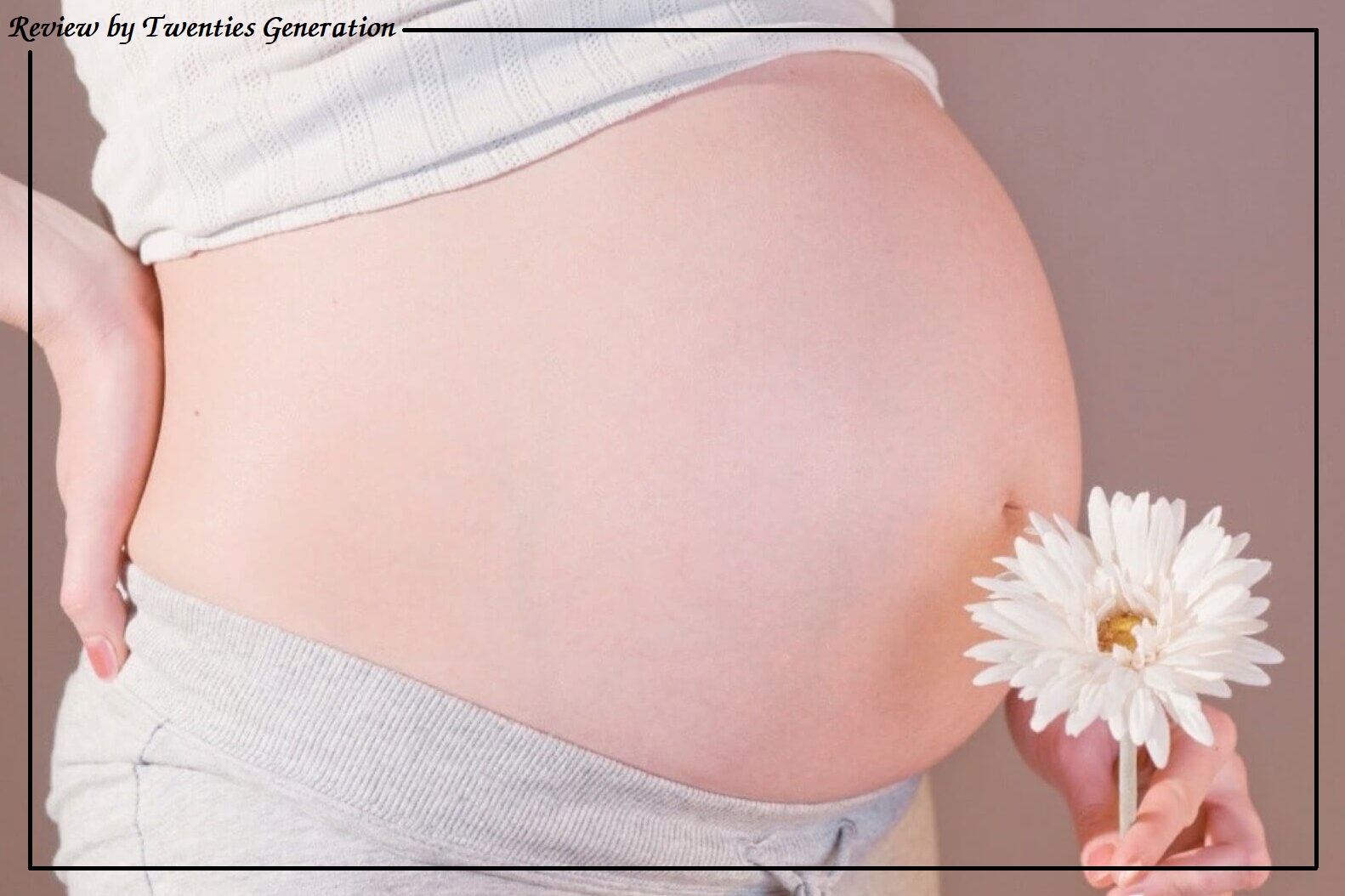The information sources used by Twenty Gen below are gathered from the National Library of Medicine to ensure the highest accuracy and scientific reliability when analyzing skincare ingredients for pregnant mothers.
SKINCARE INGREDIENTS TO AVOID DURING PREGNANCY
| INGREDIENT | INCI NAME | REASONS TO AVOID |
| Vitamin A (Anti-aging) | – Retinol – Retinal – Retinoic Acid – Retinyl Palmitate – Retinyl Propionate – Retinyl Acetate – Retinaldehyde – Hydroxypinacolone Retinoate – Tretinoin – Tazarotene – Isotretinoin | There have been 4 reported cases of birth defects associated with the use of Tretinoin during pregnancy (Source: Pubmed) |
| Hydroquinone (Brightening) | – Hydroquinone | 35%–45.3% of Hydroquinone is absorbed through the skin. The effects on the fetus are not yet clear. (Source: PubMed) |
| Chemical Sunscreen | – Oxybenzone – Octinoxate – Homosalate – Avobenzone – Enzacamene | Chemical sunscreen ingredients can be absorbed through the skin and cause hormonal disruption. Oxybenzone has been linked to Hirschsprung’s disease in newborns. (Source: ScienceDirect & EWG) |
| Formaldehyde (Preservative) | – Formaldehyde – Quaternium-15 – DMDM Hydantoin – Imidazolidinyl Urea – Diazolidinyl Urea – Sodium Hydroxymethylglycinate | Formaldehyde increases the risk of reproductive issues and miscarriage. |
| Parabens (Preservative) | – Propylparaben – Butylparaben – Isopropylparaben – Isobutylparaben – Methylparaben – Ethylparaben | Parabens can cause hormonal disruption and may lead to weight gain after childbirth. (Source: MDPI) |
| Essential Oils (Perfume) | – Aniseed Oil – Artemisia/Mugwort Oil – Basil Oil – Birch Oil – Camphor Oil – Cedarwood Oil – Clary Sage Oil – Clove Oil – Hyssop Oil – Oak Moss Oil – Parsley Oil – Pennyroyal Oil – Peppermint Oil – Rosemary Oil – Tansy Oil – Tarragon Oil – Thuja Oil – Thyme Oil – Wintergreen Oil – Wormwood Oil | Essential Oils can stimulate the uterus, potentially leading to miscarriage or preterm birth. (Source: Parents) |
| PFAS (Texture Enhancer) | – Methyl Perfluorobutyl Ether – Tetradecyl Aminobutyroylvalylaminobutyric Urea Trifluoroacetate – Trifluoropropyldimethyl/ Trimethylsiloxysilicate – Perfluorooctyl Triethoxysilane – Perfluorononylethyl Stearyl Dimethicone – Perfluorobutylethyl Stearyl Dimethicone – PTFE/Polytetrafluoroethylene/ Teflon | PFAS are chemicals that break down extremely slowly in the environment and build up in the body, potentially causing health issues such as cancer, thyroid disorders, and more. (Source: NIH) |
| Diethanolamine (DEA) (Solvent/Emulsifier) | – Diethanolamine – Oleamide DEA – Lauramide DEA – Cocamide DEA | DEA have adverse effects on pregnancy outcomes and fetal brain development.(Source: PubMed) |
| Aluminum (pH Balancing/Sweat Absorb) | – Aluminum – Aluminum Chloride – Aluminum Chlorohydrate | Aluminum cause neurobehavioral impairment in pups when mother rats absorb excessive Al during pregnancy. There have been no reports in humans. (Source: MDPI) |
| Synthetic Fragrances (Masking) | – Fragrance – Parfum – Aroma – Flavor | Synthetic fragrances often contain phthalates, a substance that can act as a hormone and interfere with endocrine function. Exposure to phthalates during pregnancy may also increase the likelihood of the child experiencing motor and language development issues. (Source: EWG và Harvard Health) |
In addition, there are other chemical ingredients such as Phthalates, Triclosan, Toluene, Bisphenol-A, etc., that should also be avoided during pregnancy. However, they are found less frequently in cosmetics and are more commonly used in personal care products like mouthwash, toothpaste, perfumes, etc. Therefore, we have not listed them in the table above, but mothers should still carefully check the packaging of any product when purchasing to ensure the highest safety.
SKINCARE INGREDIENTS THAT CAN BE USED IN SMALL AMOUNTS
| INGREDIENT | INCI NAME | REASONS TO LIMIT USE DURING PREGRANCY |
| BHA (Acne Treatment/Exfoliation) | – Salicylic Acid – Betaine Salicylate | About 10% of BHA remains in the skin when applied, with a higher percentage if used on damaged skin. There have been no reports of adverse effects on the fetus. (Source: PubMed) |
| AHA (Exfoliation) | – Glycolic Acid | Studies on animals have shown the potential reproductive side effects of Glycolic Acid when used in high doses. While no studies have been conducted on humans, experts believe it is safe for topical use during pregnancy when applied in small amounts in cosmetics. (Source: PubMed) |
| Talc (Oil Control) | – Talc | Talc can be contaminated with asbestos, posing a risk of respiratory poisoning and cancer. However, according to an FDA announcement on April 5, 2024, testing of 50 cosmetic samples containing Talc showed “no asbestos was detected in any of the 50 tested samples.” Despite this, Talc should still be limited in powder-based products (which can be inhaled) to minimize respiratory risks. (Source: FDA) |
| Licorice Extract (Anti-inflammatory/ Brightening) | – Glycyrrhiza Glabra (Licorice) Root Extract – Glycyrrhiza Uralensis (Licorice) Root Extract – Spanish Licorice Root Extract – Glycyrrhiza Inflata Root Extract – Dipotassium Glycyrrhizate | Pregnant women who consume more than 500 mg of glycyrrhizic acid per week have an increased risk of preterm birth before 38 weeks. However, licorice-derived ingredients used in cosmetics are typically present at concentrations no higher than 5%. Moreover, except for Stearyl Glycyrrhetinate and Glycyrrhetinic Acid, most other licorice-based ingredients—such as licorice root extract, dipotassium glycyrrhizate, glycyrrhizic acid, and ammonium glycyrrhizinate—are water-soluble and have limited ability to penetrate the skin’s lipid barrier. In permeability tests on pig skin, Dipotassium Glycyrrhizate was not detected in the receptor chamber. Therefore, the use of cosmetics containing licorice generally carries a very low risk. (Source: PubMed) |
| Essentail Oils (Perfume) | – Benzoin Oil – Bergamot Oil – Black Pepper Oil – Chamomile German Oil – Chamomile Roman Oil – Cypress Oil – Eucalyptus Oil – Frankincense Oil – Geranium Oil – Ginger Oil – Grapefruit Oil- Juniper Oil – Lavender Oil – Lemon Oil – Mandarin Oil – Marjoram Sweet Oil – Neroli Oil – Petitgrain Oil – Rose Otto Oil – Sandalwood Oil – Sweet Orange Oil – Tea Tree Oil – Ylang Ylang Oil | Essential Oils don’t affect fetal development (recommended concentration < 1%), but it may cause irritation for sensitive skin or stimulate the sense of smell in pregnant women. (Source: IFPA) |
| Natural Fragrances (Masking) | – Limonene – Linalool – Citral – Citronellol – Geraniol – Hexyl Cinnamal – Hydroxycitronellal | May cause irritation for sensitive skin |
| Phenoxyethanol (Preservative) | – Phenoxyethanol | Phenoxyethanol may cause irritation and potential neurological effects if ingested by newborns. However, it does not pose toxicity to the embryo or fetus when used by pregnant women.(Source: Sage Journals) |
| Benzoyl Peroxide (Acne Treatment) | – Benzoyl Peroxide | Benzoyl Peroxide is not detected in the serum. A small amount of its metabolite, benzoate, is absorbed and easily eliminated. (Source: PubMed) |

